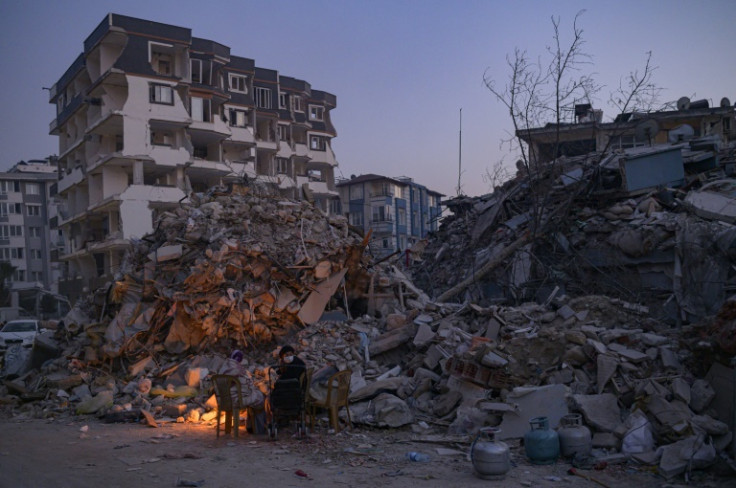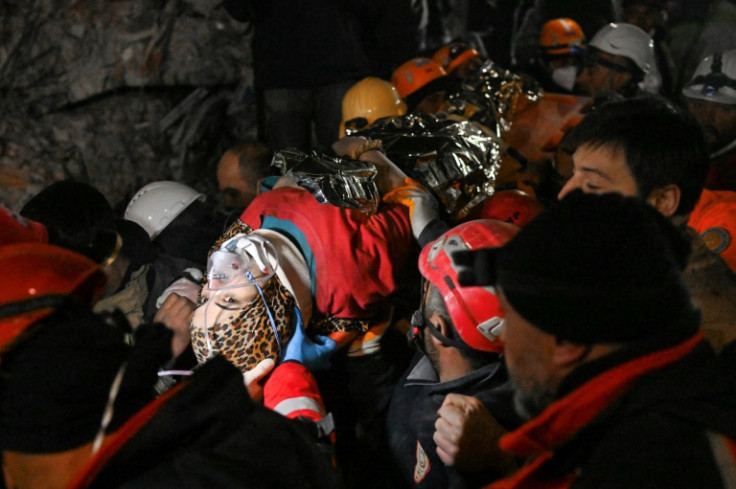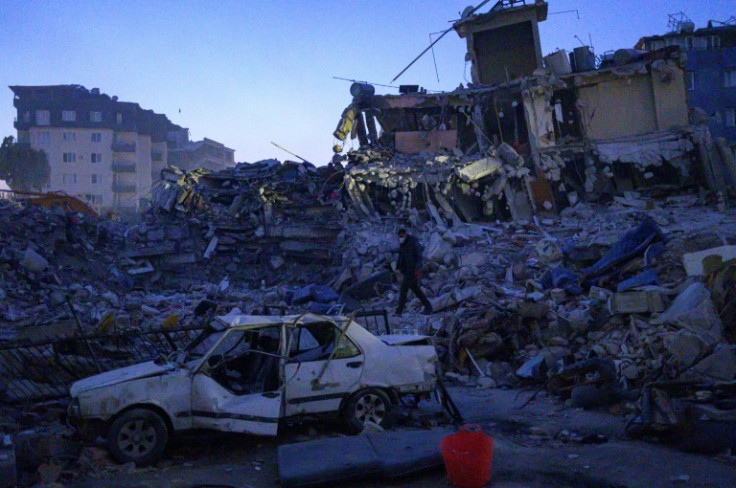'Finding corpses is all we have': Resignation after Turkey quake
Last week's 7.8-magnitude tremor killed nearly 40,000 people and razed entire towns and cities across the southeast of the country and parts of Syria.

The headscarf-covered woman could not contain her rage.
Selva was certain that dozens of her loved ones remained buried in the rubble of Turkey's catastrophic quake.
"But the rescuers have left," Selva cried beside one of the myriad bonfires protecting survivors from the bitter cold.
The 48-year-old woman watched Turkish and international teams scour through the remains of her building in Turkey's shattered Syrian border region city of Antakya.
Each one of them gave up before finding her relatives.
"The teams that came here clearly explained to us that they were looking for survivors," said retired soldier Cengiz, as he listened to Selva's cries.
"They worked for two days without finding anyone," the man said.
The rescuers moved on to other mountains of debris that were once buildings -- but now increasingly look like mass graves.
"We understand that they need to look for survivors first," their neighbour Husein chipped in.
"But we have the right to reclaim the remains of our loved one."
All three preferred not to give AFP their full names because of the political sensitivities of criticising search and rescue work.
The task facing Turkey in the wake of its deadliest disaster of modern times is hard to overstate.
Last week's 7.8-magnitude tremor killed nearly 40,000 people and razed entire towns and cities across the southeast of the country and parts of Syria.
Rescuers brave ceaseless aftershocks when they burrow their way into the rubble in search for signs of life.
Several more people were pullout out alive on Tuesday -- more than 200 hours after the initial jolt.
But rescuers have been forced to concede defeat at numerous sites. There is simply too much rubble and not enough resources to drill through tons upon tons of concrete.
Turkish President Recep Tayyip Erdogan has tried to soothe the anger by touring some devastated sites and regularly addressing the nation on TV.
But that message is not getting across in cities such as Antakya -- largely devoid of power and lacking water and basic amenities such as toilets.
One indignant woman near the quake's epicentre in nearby Kahramanmaras accused rescuers of giving up on a mother, her newborn, and another relative.
"They gave us hope by telling us that the baby and the mother were alive," said the woman, refusing to give her name for fear of retribution.
"They said they would pull them out. But today, there is nobody here!" she cried.
Yet Erdogan does not get all the blame.
The earthquake struck a region in which the veteran leader enjoyed strong support in Turkey's last national election in 2018.
Erdogan was planning to try to extend his rule into a third decade in polls set for May 14. His government has given no clear indication yet about possibly delaying the vote.
Selva said she still backed Erdogan -- despite all the pain.
"He has done a lot for us, even now," she said.
The grieving men and women around her broadly agreed with that view.
But there were were also frequent -- but anonymous -- voices of bitter dissent.
"We have reached the point where we could simply be happy to find the corpses," said a civil servant who requested anonymity for fear of losing her job.
She had lost her brother and her sister-and-law in the quake.
"We are so desperate that the hope of finding corpses is all we have," she said.


© Copyright AFP 2025. All rights reserved.





















